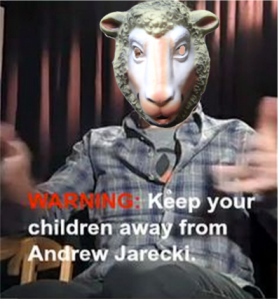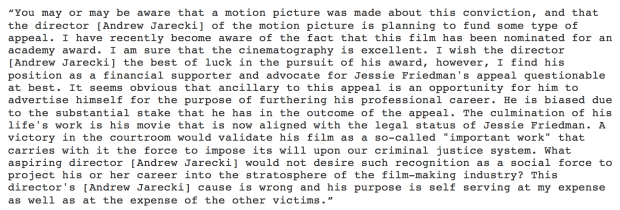Jesse Friedman served 13 years in prison after confessing to molesting children. He continues fighting to clear his name with the help of Andrew Jarecki. It was announced last month that convicted sex offender Jesse Friedman’s law suit against Nassau District Attorney Kathleen Rice will proceed. Friedman filed a suit against the DA and two of her aides for defamation. After initially dismissing Friedman’s suit, the judge has now decided to let Friedman proceed with his case.
This law suit filed on behalf of Friedman, with the support of director Andrew Jarecki, has sparked a controversial debate:
If convicted of child molestation in the court of law, is it right for the offender to sue for defamation?
It is important to put ourselves in the shoes of Friedman’s victims, and victims family members. How do they feel? How do the victims feel seeing their attacker fight to clear his name after being convicted by a jury? Even after the Nassau County Review Team conducted a reinvestigation of the case as requested, the conviction was upheld. The report stated the original conviction against Friedman was justified.
In fact, the reinvestigation found several errors made by Andrew Jarecki while producing his film, Capturing the Friedmans. Jarecki’s intention of his film Capturing the Friedman’s has been under scrutiny for a long time. His failure to comply with the investigation team revealed his true intentions of the film: to create ambiguity and manipulate the victims to portray Jesse Friedman in a certain light. This ambiguity created would earn Jarecki a storm of media attention and millions of dollars.



